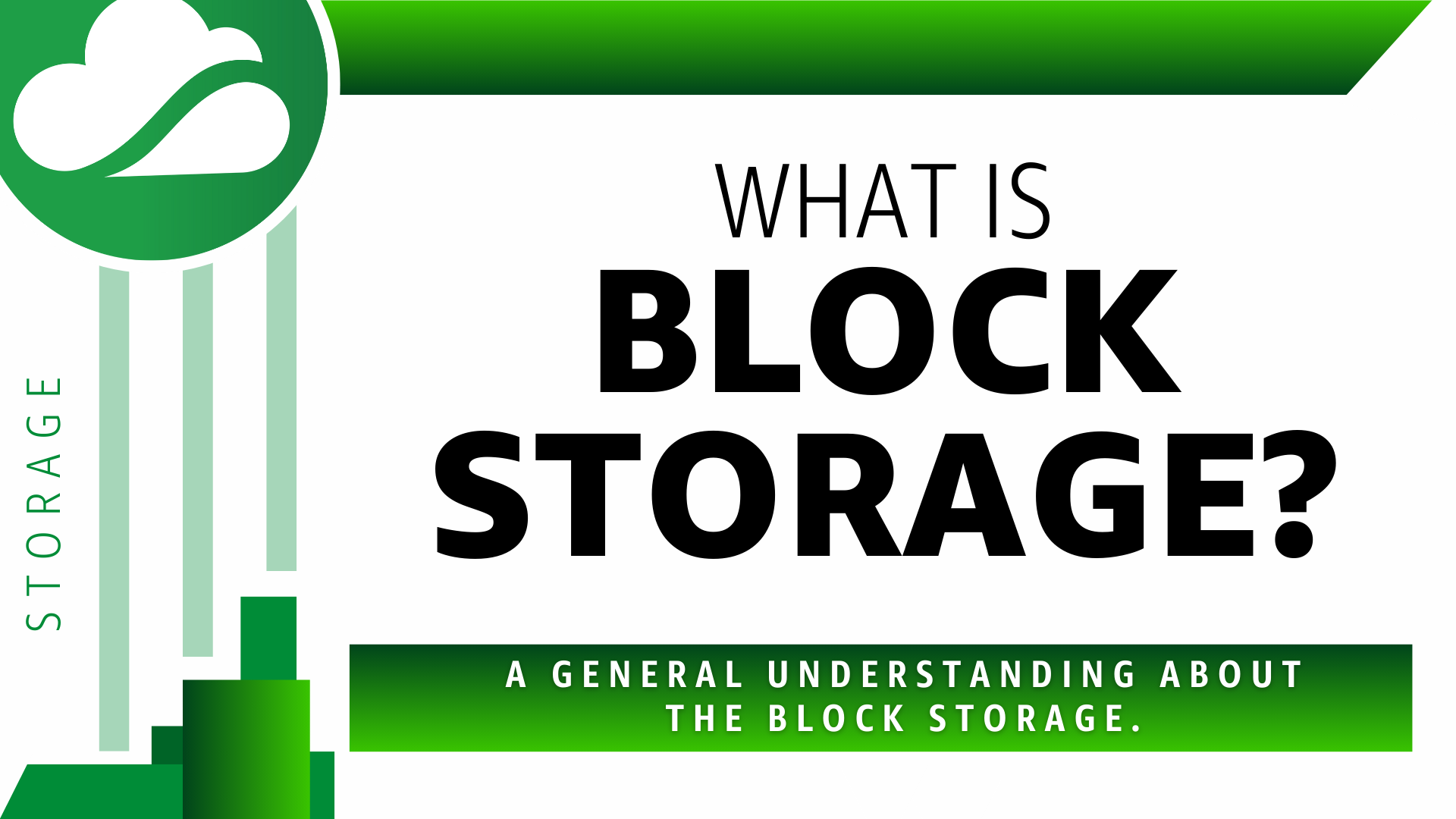
What is block storage?

In the bustling world of the digital age, the management and storage of data have gained unprecedented importance. In this realm where information is the driving force behind nearly all our activities, one term is frequently mentioned: "Block Storage." This revolutionary technology is essential for effectively and securely structuring, preserving, and harnessing our data. But what exactly is Block Storage? Why is it so important, and how does it work?
Block Storage: what is it exactly?
The technological innovation of Block Storage has profoundly transformed the data storage landscape. This technology organizes information into distinct sections called "blocks." Each block, equipped with a specific address, provides immediate access to every data segment. This ensures smooth and agile read and write operations, contributing to optimal performance for applications like databases and file systems. Block Storage is a critical component of Storage Area Network (SAN) environments, which are dedicated networks for data storage.
Advantages and limitations of Block Storage: exploration
Just like any other technology, Block Storage has its advantages and challenges. Your decision to adopt it or not will depend on your specific data management needs. Let's take a closer look at these aspects to better understand if Block Storage is the ideal solution for your organization or personal requirements.
Advantages of Block Storage:
- Superior performance: Block Storage allows smooth read and write operations. Thanks to its unique structure, it is ideal for applications that require fast processing of large amounts of data.
- Flexibility: Block Storage offers great flexibility. Each data block is treated as a distinct entity, enabling direct access and easy modification of data.
- Data recovery: In case of an issue, data recovery in Block Storage is typically simpler and faster. Due to its independent block structure, you can retrieve specific data blocks without affecting others.
- Data isolation: Block Storage is highly effective for data isolation. Since each block is treated as a separate unit, an error or issue in one block does not impact other blocks.
Limitations of Block Storage:
- Management complexity: Block Storage can be more complex to manage than other storage systems. It requires some technical expertise to efficiently configure and manage the system.
- Cost: Block Storage can be expensive, especially when used at a large scale. Each block needs to be pre-allocated, which can result in wasted space if blocks are not utilized to their maximum capacity.
- Inefficiency for small data: Block Storage is not always the most efficient for storing small amounts of data. Due to its block structure, you may end up using an entire block to store a small amount of data, leading to inefficient use of storage space.
- Limited metadata: Unlike Object Storage, which can include rich metadata for each stored object, Block Storage only contains basic information about the blocks. This can make it more challenging to search for and manage specific data.
Block Storage vs. File Storage : comparison
Block Storage stands out for its flexibility and performance compared to other storage modes, such as File Storage. To understand these differences, it is helpful to take a closer look at how these systems function. File Storage organizes data into a hierarchical structure of files and folders, which is intuitive for the user but may not be ideal for applications requiring fast processing of large amounts of data. On the other hand, Object Storage stores data as objects accompanied by descriptive metadata. It is excellent for scalability and storing large amounts of data but may be less suitable for real-time operations.
Block Storage in the cloud: a step towards the future
Block Storage also has its place in the cloud, offering additional benefits in terms of scalability and accessibility. Cloud giants like Amazon Web Services, Google Cloud, and Microsoft Azure all provide Block Storage services that can be tailored to your business's specific needs. This transition to the cloud has opened new perspectives for data management, making Block Storage even more relevant in the current digital landscape.
Conclusion: Block Storage, a strategic choice for the future
In conclusion, Block Storage is an essential component of modern storage infrastructure. It offers high performance and remarkable flexibility. Despite some challenges, such as the complexity of management and cost, it remains a technology of choice for many enterprise applications, especially those demanding fast read and write operations. As cloud technology continues to evolve, Block Storage will continue to be a pillar of data storage and management in the future. It is worth exploring this technology further and understanding how it can best fulfill your data management needs.